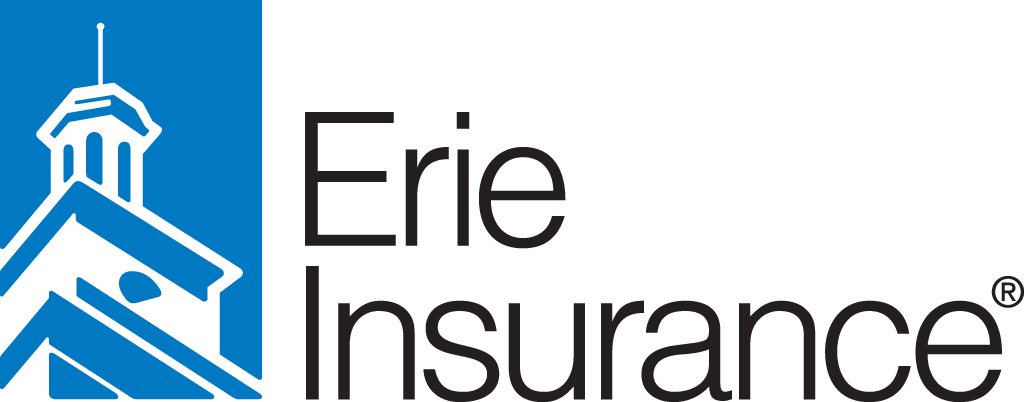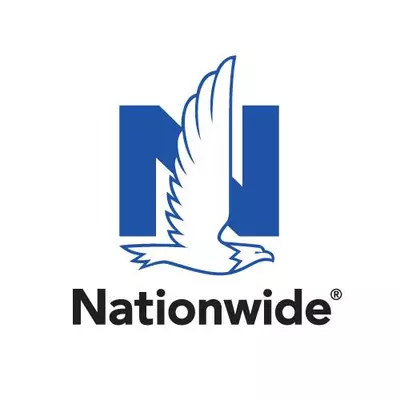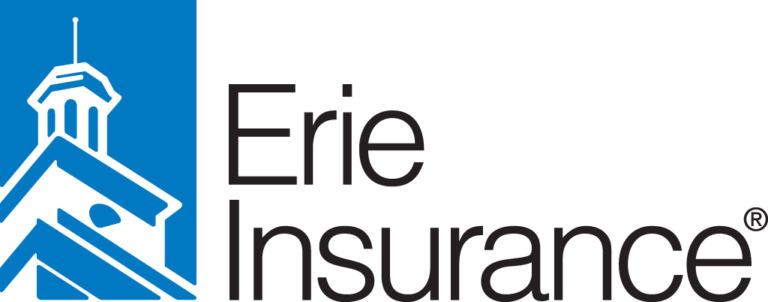The average cost of homeowners insurance in Indiana is $1,610 per year, or about $134 per month, according to a NerdWallet analysis. That’s less than the national average of $1,820 per year.
We’ve analyzed rates and companies across the state to find the best homeowners insurance in Indiana. Our sample rates are for a homeowner with good credit and $300,000 of dwelling coverage, $300,000 of liability coverage and a $1,000 deductible. Your rates will be different.
Note: Some insurance companies included in this article may have made changes in their underwriting practices and no longer issue new policies in your state.
Why you can trust NerdWallet
Our writers and editors follow strict editorial guidelines to ensure fairness and accuracy in our writing and data analyses. You can trust the prices we show you because our data analysts take rigorous measures to eliminate inaccuracies in pricing data and may update rates for accuracy as new information becomes available.
We include rates from every locale in the country where coverage is offered and data is available. When comparing rates for different coverage amounts and backgrounds, we change only one variable at a time, so you can easily see how each factor affects pricing.
Our sample homeowner had good credit, $300,000 of dwelling coverage, $300,000 of liability coverage and a $1,000 deductible.
The best homeowners insurance in Indiana
If you’re looking to buy homeowners insurance from a well-rated national brand, consider one of these insurers from NerdWallet’s list of the Best homeowners insurance companies.
More about the best home insurance companies in Indiana
See more details about each company to help you decide which one is best for you.
Erie
Best for homeowners who want to work with an agent.
Coverage options
More than average
Average set of discounts
NAIC complaints
Fewer than expected

Erie
Best for homeowners who want to work with an agent.
Coverage options
More than average
Average set of discounts
NAIC complaints
Fewer than expected
Based in Pennsylvania, Erie is a regional insurer that offers guaranteed replacement cost for the structure of your home. With this coverage, the company will pay to rebuild your home completely after a disaster, even if the amount exceeds your dwelling limit. Not all insurers offer this option, but it’s worth considering as a hedge against rising construction costs.
Got a car to insure, too? If you bundle your home and auto insurance with Erie, you could get a discount of around 20%. You may also be able to save if your home has certain safety and security features such as smoke alarms or sprinkler systems.
State Farm
Well-established insurer with a lengthy list of coverage options.
Coverage options
More than average
Average set of discounts
NAIC complaints
Fewer than expected
State Farm
Well-established insurer with a lengthy list of coverage options.
Coverage options
More than average
Average set of discounts
NAIC complaints
Fewer than expected
State Farm is a great choice for homeowners who like to work directly with a company representative, as the company sells policies through a wide network of agents. And its attention to customer service has paid off; the company has fewer customer complaints to state regulators than expected for a company of its size.
State Farm offers a free Ting device as a perk for home insurance policyholders. Ting is a smart plug that monitors your home’s electrical network to help prevent fires.
Farmers
Those seeking benefits like diminishing deductibles and claims forgiveness may want to consider Farmers.
Coverage options
More than average
Average set of discounts
NAIC complaints
Fewer than expected
Farmers
Those seeking benefits like diminishing deductibles and claims forgiveness may want to consider Farmers.
Coverage options
More than average
Average set of discounts
NAIC complaints
Fewer than expected
Homeowners policies from Farmers may include two valuable types of insurance: extended dwelling and replacement cost coverage. Extended dwelling coverage gives you extra insurance for the structure of your house, while replacement cost coverage offers higher reimbursement for stolen or destroyed belongings.
Some Farmers policies also come with perks that can save you money. For example, with claim forgiveness, Farmers won’t raise your rate for a claim as long as you haven’t filed one within the past five years.

Cincinnati Insurance
Sells homeowners policies through local independent agents across the U.S.
Coverage options
More than average
Average set of discounts
NAIC complaints
Far fewer than expected

Cincinnati Insurance
Sells homeowners policies through local independent agents across the U.S.
Coverage options
More than average
Average set of discounts
NAIC complaints
Far fewer than expected
Cincinnati Insurance sells homeowners policies through independent agents, with various options for standard and high-value homes. You may be able to add coverage for things like identity theft, personal cyber attacks or certain types of water damage.
Cincinnati may offer you a discount for bundling home and auto insurance, having a newer home, installing a centrally monitored alarm system or going a certain amount of time without filing a claim.

American Family
Comprehensive coverage for homeowners in 19 states, mostly in the West and Midwest.
Coverage options
More than average
Average set of discounts
NAIC complaints
Fewer than expected

American Family
Comprehensive coverage for homeowners in 19 states, mostly in the West and Midwest.
Coverage options
More than average
Average set of discounts
NAIC complaints
Fewer than expected
Founded in Madison, Wisconsin, American Family receives fewer consumer complaints than expected for a company of its size. You may be able to customize your policy with optional add-ons such as identity theft, equipment breakdown or service line coverage, which pays for repairs to water, power or other underground lines that run to your house.
Homeowners may be able to save on their premiums by installing smart-home devices, bundling multiple policies or setting up automatic payments.

Nationwide
For shoppers seeking a broad range of coverage options, Nationwide may fit the bill.
Coverage options
More than average
Great set of discounts
NAIC complaints
Close to expected

Nationwide
For shoppers seeking a broad range of coverage options, Nationwide may fit the bill.
Coverage options
More than average
Great set of discounts
NAIC complaints
Close to expected
We like Nationwide for its wide variety of coverage options. For example, its standard homeowners insurance policy generally includes ordinance or law coverage, which can help pay to bring your home up to current building codes after a covered claim. You can add other coverage for things like identity theft and damage from backed-up sewers and drains.
Depending on how much personal assistance you need, you can get a quote for homeowners insurance on the Nationwide website or work with a local agent instead. You can also use the website to pay bills, file claims or check claim status.

USAA
Offers perks for the military community.
Coverage options
Below average
Average set of discounts
NAIC complaints
Far fewer than expected

USAA
Offers perks for the military community.
Coverage options
Below average
Average set of discounts
NAIC complaints
Far fewer than expected
USAA sells homeowners insurance to veterans, active military members and their families. If that description fits you, you may want to consider a USAA policy. That’s because the company’s homeowners insurance has certain features that other insurers may charge extra for.
For example, USAA automatically covers your personal belongings on a “replacement cost” basis. Many companies pay out only what your items are worth at the time of the claim, which means you may not get much for older items. USAA pays enough for you to buy brand-new replacements for your stuff.
How much does homeowners insurance cost in Indiana?
The average annual cost of home insurance in Indiana is $1,610. That’s 12% less than the national average of $1,820.
In most U.S. states, including Indiana, many insurers use your credit-based insurance score to help set rates. Your insurance score is similar but not identical to your traditional credit score.
In Indiana, those with poor credit pay an average of $3,265 per year for homeowners insurance, according to NerdWallet’s rate analysis. That’s 103% more than those with good credit.
Average cost of homeowners insurance in Indiana by city
How much you pay for homeowners insurance in Indiana depends on where you live. For instance, the average cost of home insurance in Indianapolis is $1,835 per year, while homeowners in Fort Wayne pay $1,435 per year, on average.
|
Average annual rate |
Average monthly rate |
|
|---|---|---|
|
Bloomington |
||
|
Crown Point |
||
|
Evansville |
||
|
Fort Wayne |
||
|
Indianapolis |
||
|
Jeffersonville |
||
|
New Albany |
||
|
Noblesville |
||
|
South Bend |
||
|
Terre Haute |
||
|
Valparaiso |
||
|
West Lafayette |
The cheapest home insurance in Indiana
Here are the insurers we found with average annual rates below the Indiana average of $1,610.
What to know about Indiana homeowners insurance
Here are several risks to keep in mind when shopping for the best homeowners insurance in Indiana.
Severe weather
From freezing temperatures in the winter to hail and tornadoes in the spring and storms in the summer, Indiana sees a wide range of severe weather. Happily for homeowners, a standard homeowners policy typically covers most damage caused by these storms. For example, damage from falling trees or a roof collapse due to the weight of ice are both usually covered.
Be aware of several key exceptions, though. Wind and hail damage can come with a separate deductible, so review your insurance policy to ensure you understand your coverage when it comes to these risks.
A wind or hail deductible is usually either a flat rate, such as $1,000, or a percent of your dwelling coverage. For example, your policy may have a $1,000 deductible for most claims and a 1% deductible for hail or wind claims. So if your house has $250,000 worth of dwelling coverage, you’d have to pay for the first $2,500 of hail damage yourself.
Flooding
Indiana is particularly susceptible to flooding. Since 24% of the state was historically a wetland, flooding is a significant risk. Floods can cause extensive damage, and standard homeowners insurance policies do not typically cover flood damage.
To find out if you’re at risk, check out the Federal Emergency Management Agency’s flood maps or visit RiskFactor.com, a website from the nonprofit First Street Foundation. Even if your property is deemed low-risk, it may be worthwhile to purchase flood insurance for extra peace of mind.
Keep in mind that while you can purchase flood coverage anytime, there’s typically a 30-day waiting period before the insurance takes effect. Here’s more information about flood insurance and waiting periods.
Earthquakes
While Indiana may not be the first state that pops into your mind when you hear the word “earthquake,” seismic activity can happen unexpectedly and cause significant damage, especially along the Wabash Valley seismic zone.
Homeowners insurance policies typically do not include additional coverage for earthquakes. However, your policy may cover damage related to an earthquake. For example, if a gas line dislodged by the earthquake starts a fire, that may be covered under your standard policy. Review your policy carefully, and if you live in an area with higher risk, consider purchasing additional earthquake insurance.
Sinkholes
Sinkholes are common in some parts of Indiana due to its karst geography, and they can cause significant and costly damage to homes. Much like earthquakes, sinkholes are an exception to standard homeowners insurance policies.
If you live in an area with sinkhole activity, you may want to consider additional coverage to cover sinkholes.
Indiana insurance department
The Indiana Department of Insurance oversees the state’s insurance industry and provides consumer protection. It also provides resources on homeowners insurance in Indiana, such as general information pamphlets on insurance protections and a guide to earthquake insurance.
You can file a complaint against your insurance company using the Indiana Department of Insurance’s website as well as by mail. If you have questions about filing a complaint or about Indiana insurance, contact the Department by email at [email protected] or toll-free at 800-622-4461.
Looking for more insurance in Indiana?
Amanda Shapland contributed to this story.
Is homeowners insurance required in Indiana?
Homeowners insurance isn’t legally required in Indiana, but your mortgage lender may require you to buy it.
Does Indiana home insurance cover flooding?
A standard homeowners policy typically doesn’t cover flooding. That means you may want to buy separate flood insurance if your home is in a high-risk area. Learn how to find the best flood insurance.
How can I save money on homeowners insurance in Indiana?
There are several ways to save money on homeowners insurance in Indiana:
-
Shop around to make sure you’re getting the best rate.
-
Choose a higher deductible. In case of any claims, you’ll pay more out of pocket, but your premiums will be lower.
